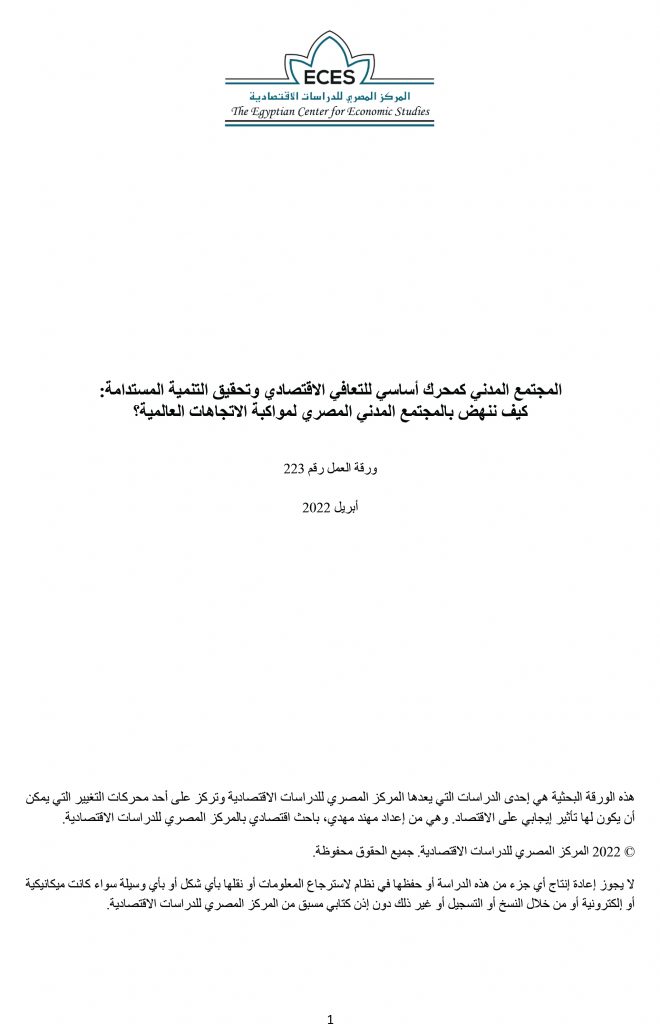This research paper studies and analyzes civil society in Egypt in an attempt to assess its economic and social contribution. Civil society, if properly supported and strengthened, can be a key driver of change and achieve sustainable development in Egypt. Following the introduction, the study begins with an overview of key and pioneering international experiences in which civil society plays a strong role in boosting the national economy, supporting social protection networks, and consolidating their ties in a sustainable and effective manner. The study then addresses Egypt’s civil society, explaining its key features and components, and provides a detailed analysis of its vulnerabilities, whether in relation to the society itself or the institutional and legislative environment through which it operates. The following part discusses the most important measures and changes required at all levels to address the problems and vulnerabilities that limit the role of civil society in Egypt. Part IV presents the study’s key findings, highlighting the main actions and changes required at the level of the associations themselves, such as reconsidering the prevailing classifications and definitions related to associations and their activities, whose patterns overlap on the ground. It also stresses the need to reach quantitative and qualitative indicators to measure the results or outcomes of civil society in Egypt, determine a relative weight for each indicator or set of indicators, and identify procedures for institutional and legislative frameworks. Most importantly, reviewing the state’s view of civil society as a major development partner that helps it achieve national goals at the local level, allowing it to work freely and flexibly, activating the role of local governments through the application of administrative decentralization, and effecting a radical change in the philosophy of legislation and the law regulating civil society in a way that ensures its independence, efficiency, and effectiveness.

Civil Society as a Main Driver of Recovery and Sustainable Development: How to advance Egypt’s Civil Society to Keep Pace with the Global Trends
26-04-2022
Author(s): Mohanad Mahdy, Research Analyst, ECES
Publication Number: ECES-WP223-A
